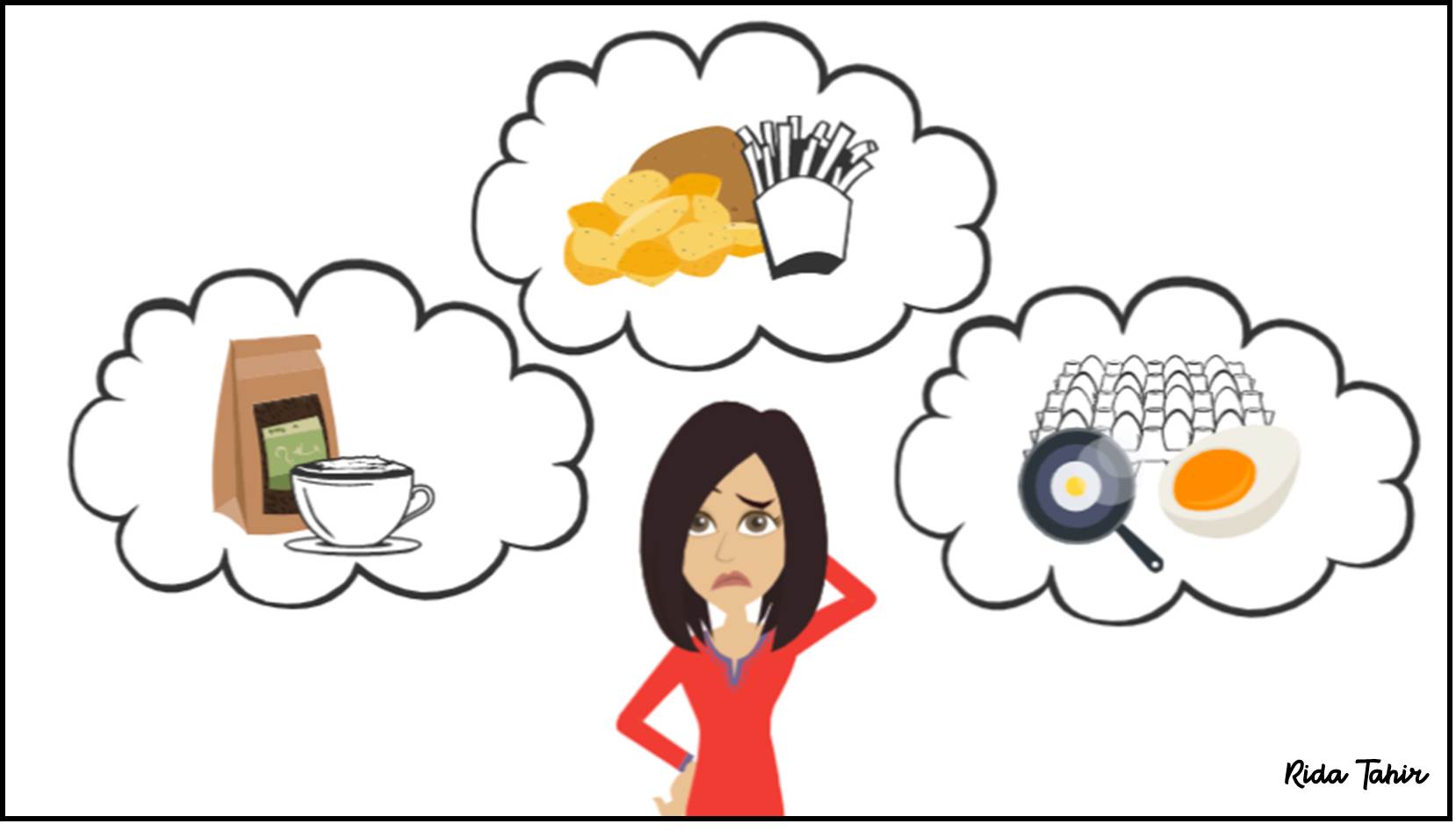The Parable of Potato, Egg and Coffee:
A Lesson in Attitude
Written by Rida Tahir on Aug 15, 2020 (5 minute read)


One day, a little girl went crying to her father and told him all her problems and complains about life. She was stuck and depressed, defeated by the circumstances, unable to deal with how the life was treating her.
The father took her into the kitchen and put three pots of water on the stove. When the water started to boil, he put a potato in one pot, an egg in the second pot and some coffee in the third pot. After a few minutes, he turned off the stove and asked his daughter what she could see. The daughter replied she could see a potato, an egg and coffee.
The father asked her to look closely and notice how the potato, egg and coffee beans have changed. All three of them were exposed to the same circumstances, the same environment, of hot boiling water and they all came out different. The potato was hard and inedible, but now it’s soft and mushy. The egg was fluid and inedible, but is now hard and delicious. Coffee has taken a new form altogether and changed the water itself.
* * * * * * * * *
The parable illustrates how testing times or negative circumstances are like boiling water. We all end up in the metaphorical hot water at some point in our lives and we all come out different.
Some people are like potatoes, they become weak and fragile after going through tough times. They are bitter, miserable, unable to cope and can easily break down.
Some people are like eggs, they come out hard and strong, able to cope with the circumstances amicably.
Other people are like coffee, they transform into a different person, a better version of themselves, and in doing so, they change the environment as well.
Epictetus, a Greek philosopher, said:
It’s not what happens to you, but how you react to it that matters.
Whatever happens in your life, no matter how challenging the times are, you always have a choice. You can choose your attitude. You can choose your response or reaction. You can choose how the circumstances are going to affect you and what you are going to become.
You have no control over the external circumstances. You have no control over much of what has happened in the past, what is happening now or what will happen in the future.
What you do have complete control over is your attitude and your reaction to the circumstances.
Viktor Frankl’s, an Austrian neurologist and psychiatrist, was imprisoned in Nazi death camps, where his entire family was killed (except his sister). He was naked, alone, tortured and humiliated, but his Nazi captors could not take away his sense of inner peace and freedom. They could do whatever they wanted with his naked body, but they could not control his mind and his thoughts. His identity and self-respect remained intact. He was able to choose his response, his attitude and how being held captive in Nazi’s concentration camps was going to affect him.
What did he choose? He chose to be like coffee i.e. he not only transformed into a better version of himself, but he also changed the environment by becoming a source of inspiration, comfort and hope for those around him and helped them find meaning in their suffering despite of the unimaginably degrading circumstances they were in.
That’s how Viktor Frankl survived the unimaginable horror of the holocaust and, quite literally, lived to tell the tale, by using his "power to choose" his response and attitude.
I really like how Charles Swindoll explained the importance of attitude and how we are in charge of our attitudes:
The longer I live, the more I realize the impact of attitude on life. Attitude, to me, is more important than facts. It is more important than the past, than education, than money, than circumstances, than failures, than successes, than what other people think or say or do. It is more important than appearance, giftedness or skill. It will make or break a company...a church....a home. The remarkable thing is we have a choice every day regarding the attitude we will embrace for that day. We cannot change our past...we cannot change the fact that people will act in a certain way. We cannot change the inevitable. The only thing we can do is play on the one string we have, and that is our attitude...I am convinced that life is 10% what happens to me and 90% how I react to it. And so it is with you...we are in charge of our attitudes.
Our attitudes do not determine how we feel in a certain situation, but they do determine how we handle these feelings and what we do with these feelings.
Do we lose control and let our feelings and emotions get the best of us and destroy our mental peace and happiness?
Or do we exercise the power to choose, take control of our feelings, wait for a while and let them pass before we determine our course of action?
Amy Morin, a Psychotherapist and author, sums it up perfectly:
You have the power to choose the type of attitude you want to have in life. The way you react to problems, setbacks and angry people says a lot about you. Choosing to have a positive, compassionate, and determined attitude can mean the difference between feeling sorry for yourself and creating the life you always dreamed of living.
So, what would you choose to be? a potato, an egg or coffee?
The choice is yours.